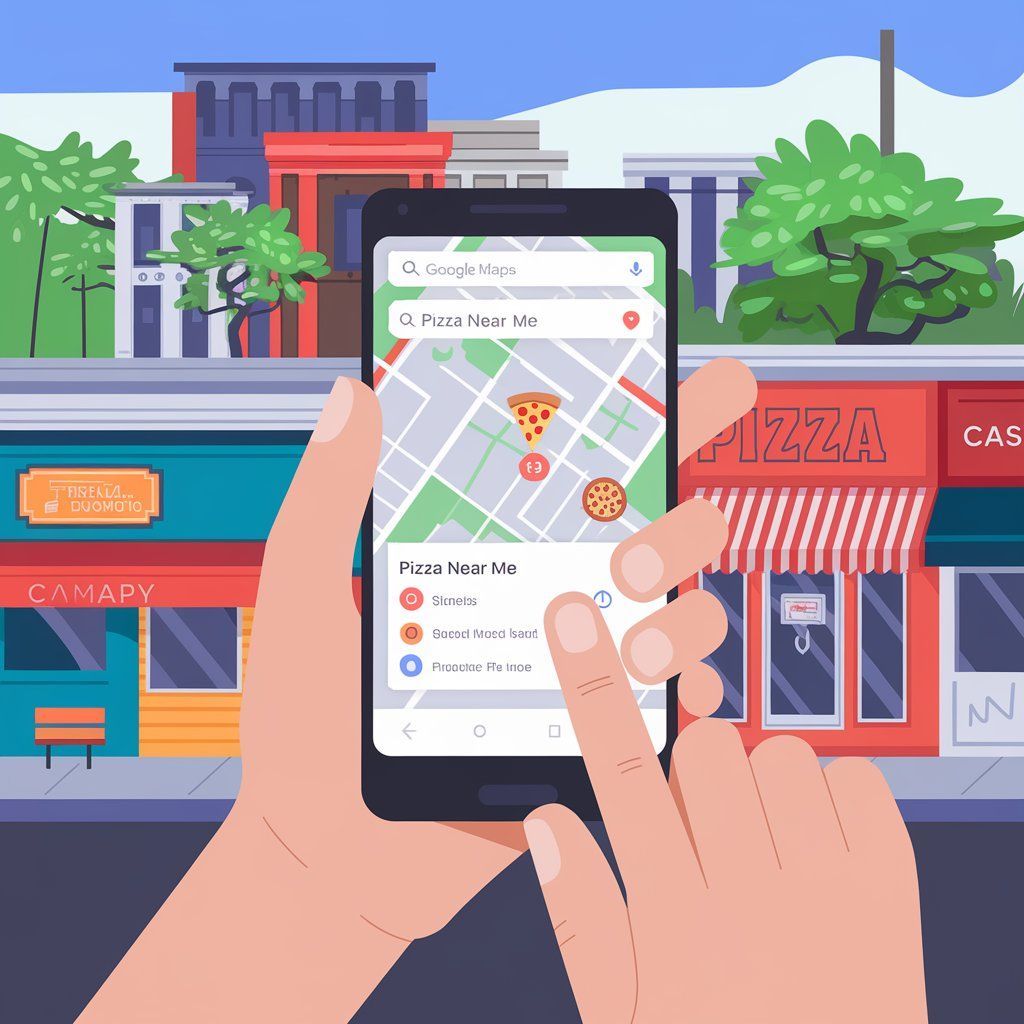The Ultimate Local SEO Guide for Small Businesses in 2025
Why Local SEO Matters to Small Businesses
So you've got a small business and you're trying to get noticed. It's 2025, and let's face it, the internet isn't getting any smaller. That's where a solid local SEO package comes in. Think of it as your business's secret weapon to stand out in your neighborhood. Whether you're running a cozy cafe or a quirky retail shop, local SEO can help you grab the attention of folks nearby who are searching for what you offer. It's all about making sure your business pops up when potential customers are looking for something in your area. So, let's dive into what makes a local SEO package tick and how it can be your ticket to success.
Key Takeaways
- Local SEO is crucial for small businesses looking to attract nearby customers.
- Optimizing your Google My Business profile is a key component of any local SEO package.
- Creating content that targets local interests can significantly enhance your online presence.
- Regularly updating your strategies based on performance data helps maintain and improve your local search rankings.
- Partnering with the right local SEO agency can make a big difference in achieving your business goals.
Understanding the Importance of Local SEO for Small Businesses
Why Local SEO Matters in 2025
Local SEO is a game-changer for small businesses trying to make a mark in their communities. In 2025, it's more relevant than ever. With nearly half of all searches having a local intent, businesses can no longer afford to ignore this opportunity. Local SEO helps businesses attract new customers by optimizing their online presence, making it easier for potential clients to find them through search engines. This strategy is essential for brands looking to drive traffic from the internet to their physical locations Local SEO helps businesses attract new customers.
The Role of Local SEO in Business Growth
Local SEO isn't just about getting your business noticed—it's about driving real growth. When done right, it connects you with customers who are ready to buy, leading to higher conversion rates. By focusing on local customers, businesses can enjoy more foot traffic, increased sales, and a stronger community presence. It's like having a signpost pointing directly to your store, but in the digital world.
How Local SEO Differs from Traditional SEO
Unlike traditional SEO, which casts a wide net to reach a global audience, local SEO zeroes in on specific geographic areas. This means it's tailored to attract people who are nearby and actively searching for the products or services you offer. Traditional SEO might help you rank for broad keywords, but local SEO ensures you show up when someone nearby is searching for something you provide. This targeted approach not only increases visibility but also ensures you're reaching the right audience at the right time.
Key Components of an Effective Local SEO Package
Optimizing Your Google My Business Profile
First off, if you haven't claimed your Google My Business (GMB) profile yet, you're missing out big time. This is like the front door to your online presence for local searches. Make sure your business name, address, and phone number (NAP) are spot-on. Add your business hours, and don't forget to upload some high-quality photos. These details help customers find you and give search engines the info they need to rank you better. Plus, responding to reviews on GMB shows potential customers that you care about their feedback.
Building Local Citations and Online Directories
Citations are basically mentions of your business on other websites, and they’re crucial for local SEO. Think of them as a digital version of word-of-mouth. Consistency is key here—your NAP details must be identical across all platforms. List your business in local directories like Yelp, Yellow Pages, and industry-specific sites. This not only boosts your visibility but also helps search engines verify your business info, which can improve your rankings.
Creating Geo-Targeted Content
Content is king, but for local SEO, it’s all about being the king of your own castle. Write blog posts about local events, news, or anything that ties your business to the community. Use location-specific keywords naturally in your content to help search engines understand that you’re a local authority. This kind of targeted content helps attract local customers who are searching for the services or products you offer.
Local SEO is like planting seeds in your own backyard—you nurture it, and soon enough, you'll see a garden of loyal customers blooming right where you are.
By focusing on these core components, you're setting up a solid foundation for your local SEO strategy. It's not just about being found; it's about being the go-to choice for your community. SEO packages often include these elements, ensuring your business is seen by those who matter most.
Strategies to Enhance Your Local SEO Efforts
Conducting Comprehensive Keyword Research
To start with, identifying the right keywords is like setting the foundation for your house. You need to know what local customers are typing into search engines. Targeting these specific keywords can dramatically boost your local visibility. Begin by listing out potential keywords, then refine them using tools like Google Keyword Planner. Keep an eye on the competition and focus on long-tail keywords that are less competitive but highly relevant.
Leveraging Social Media for Local Engagement
Social media isn’t just for sharing cat videos; it’s a powerful tool for local businesses. Use platforms like Facebook and Instagram to connect with your community. Share local events, engage with followers, and create content that resonates with your local audience. This not only improves your local SEO but also builds a loyal customer base.
Utilizing Customer Reviews and Feedback
Customer reviews are gold for local SEO. Encourage happy customers to leave positive reviews on platforms like Google and Yelp. Respond to reviews—both good and bad—to show you care about customer feedback. This engagement not only improves your online reputation but also signals to search engines that your business is active and trustworthy.
"The secret to local SEO success lies in connecting with your community and responding to their needs. It's not just about being seen but being chosen."
By following these strategies, you’re setting up your business to thrive in the local market, ensuring that when locals search, they find you. Remember, local SEO is an ongoing process, so keep adapting and improving your strategies.
Tracking and Measuring Local SEO Success
Setting Up Analytics and Tracking Tools
Alright, so you've got your local SEO strategy rolling, but how do you know if it's actually working? The first step is setting up the right tools to track your progress. Utilizing tools such as Google Analytics and Google Search Console is essential for small businesses to effectively track and measure their local SEO efforts. These tools not only help you understand where your traffic is coming from but also give you insights into user behavior on your site. Make sure to set these up right from the start and schedule regular check-ins to see what's working and what's not.
Understanding Local SEO Metrics
When it comes to local SEO, not all metrics are created equal. You want to focus on a few key indicators:
- Local Search Rankings: Keep an eye on where you stand in local search results. This is crucial because higher rankings mean more visibility.
- Website Traffic: Look at the number of visitors your site is getting, but also pay attention to where they're coming from. Are they local?
- Engagement Rates: This includes metrics like bounce rate and time on page. If people are leaving quickly, something might be off.
Adjusting Strategies Based on Performance Data
Once you've got the data, it's time to act on it. If you notice that your bounce rate is high, it might be time to tweak your content or layout. Maybe your local rankings aren't as high as you'd like; this could be a sign to revisit your keywords or improve your Google Business Profile. Regular audits and adjustments based on your analytics will keep your strategy fresh and effective.
Remember, tracking your local SEO success isn't just about numbers. It's about understanding what those numbers mean for your business and using them to make informed decisions. Keep refining your approach based on what the data tells you, and you'll see your local presence grow.
Real-World Success Stories of Local SEO Implementation
Case Study: Boosting Visibility for a Local Retailer
Imagine a small boutique nestled in a bustling neighborhood. They decided to invest in local SEO to increase foot traffic and online visibility. Within months, their website traffic shot up by 50%, and in-store visits doubled. They focused on optimizing their Google My Business profile and encouraged happy customers to leave reviews. This strategy paid off, as they climbed the local search rankings and saw a noticeable boost in sales. Local SEO proved to be a game-changer for them.
How a Small Restaurant Increased Foot Traffic
A quaint family-run restaurant faced stiff competition from larger chains. By targeting local keywords and creating geo-specific content, they managed to attract more diners. They also engaged with their community on social media, sharing daily specials and events. Their efforts resulted in a 35% increase in reservations and more walk-ins. The success of this strategy highlights the profitable examples of starting SEO services that can transform small businesses.
Lessons Learned from Successful Local SEO Campaigns
- Engage with your community: Building relationships with local customers can lead to more positive reviews and word-of-mouth referrals.
- Optimize for mobile: Ensure your website is mobile-friendly, as many local searches are performed on smartphones.
- Monitor your progress: Use analytics tools to track your local SEO efforts and adjust strategies as needed.
Real-world examples demonstrate that with the right approach, even small businesses can thrive in competitive markets using local SEO. It's all about being visible where your customers are looking.
Future Trends in Local SEO for 2025
The Rise of Voice Search and Its Impact
Voice search is becoming a big deal. People are using their phones and smart speakers to search for stuff, and it's changing how businesses think about SEO. By 2025, more than half of all searches are expected to be voice-activated. This means businesses need to optimize their content for voice search by using natural language and answering common questions directly. Imagine someone asking, "Where's the best pizza place near me?" Your business should have the answer ready.
Adapting to Algorithm Changes
Google and other search engines are always shaking things up with new algorithms. These changes can affect how businesses show up in local search results. It's important to stay updated and tweak your SEO strategies accordingly. Keep an eye on what's working and what's not, and be ready to adjust. Remember, 76% of consumers searching for "near me" visit a business within a day, so staying visible is crucial.
The Growing Importance of Mobile Optimization
Everyone's on their phones these days, so having a mobile-friendly website is a must. If your site doesn't load quickly or look good on a phone, you're losing potential customers. Make sure your website is responsive and easy to navigate on mobile devices. This not only improves user experience but also boosts your local search ranking.
Local SEO is constantly evolving, and businesses that adapt to these changes will stay ahead of the competition. Embrace new trends and technologies to connect with local customers effectively.
Choosing the Right Local SEO Partner
Evaluating SEO Agencies and Consultants
Picking the right SEO partner can feel like finding a needle in a haystack. It's important to know what you're looking for. Start by checking their track record. Look at case studies or past work to see if they've helped businesses like yours. Don't just take their word for it; dig into reviews and ratings. Top-rated SEO services can give you a good idea of what to expect. Also, consider their approach to communication. Are they transparent about their strategies and results?
Questions to Ask Potential SEO Partners
Before signing any contracts, lay your cards on the table. Here are some questions you might want to ask:
- What specific local SEO strategies do you recommend for my business?
- How do you measure success and what tools do you use?
- Can you provide examples of past successes with similar businesses?
These questions will help you gauge their expertise and see if they're a good fit for your needs.
Ensuring a Collaborative and Transparent Relationship
Once you choose a partner, maintaining a good working relationship is key. Regular updates and reports are a must. Make sure there's a mutual understanding of goals and expectations. A good SEO partner will keep you in the loop and be open to feedback. Remember, it's a two-way street, and working together can lead to great results for your local SEO efforts.
Choosing the right local SEO partner isn't just about the services they offer, but how they align with your business goals and values. A collaborative approach ensures that both parties are invested in the success of the project.
Conclusion
So there you have it, folks. Local SEO isn't just a buzzword; it's a game-changer for small businesses looking to make their mark in 2025. By focusing on your local community and optimizing your online presence, you're not just reaching more people—you're reaching the right people. And let's be honest, in the world of business, that's what really counts. Sure, it takes some effort and a bit of patience, but the payoff is worth it. You'll see more foot traffic, more calls, and more clicks, all leading to more sales. So why wait? Start implementing these strategies today and watch your business grow. Remember, in the digital age, being local is your superpower.
Frequently Asked Questions
What exactly is local SEO?
Local SEO is a way to help your business show up in search results when people nearby look for products or services you offer. It's like putting your store on a digital map for locals to find.
Why is local SEO important for small businesses?
Local SEO is crucial because it helps small businesses stand out in their community, bringing in more local customers who are ready to buy.
How can I improve my local SEO?
You can boost your local SEO by making sure your business information is correct online, getting reviews from happy customers, and using keywords that mention your location.
What’s the difference between local SEO and regular SEO?
Local SEO focuses on reaching people in your area, while regular SEO aims to attract visitors from all over. Local SEO is about being found by nearby customers.
How do customer reviews affect local SEO?
Customer reviews can make a big difference. Positive reviews can improve your business's online reputation and help it rank higher in local search results.
What tools can I use to track local SEO success?
Tools like Google My Business, Google Analytics, and local SEO software can help you see how well your local SEO efforts are working.










